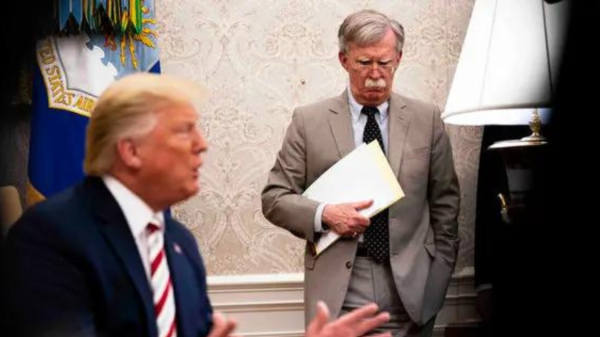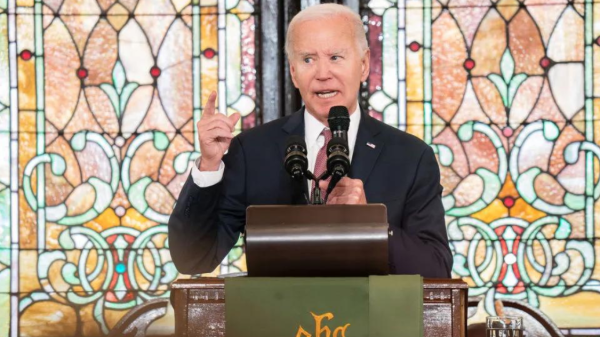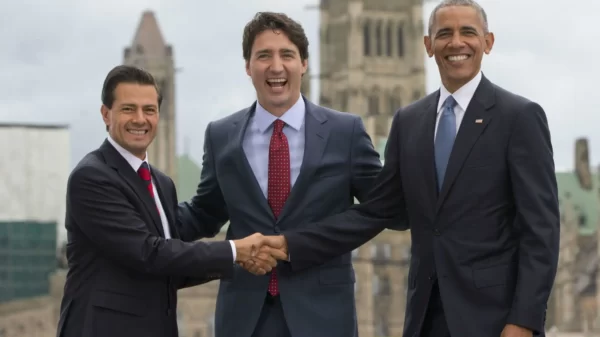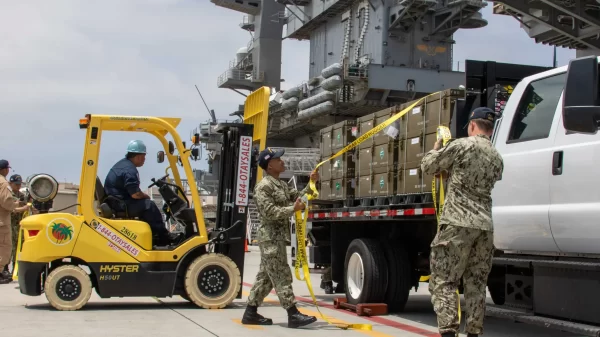U.S. and Chinese officials met on Tuesday to examine joint efforts to prevent the flow of fentanyl into the U.S., a sign of collaboration as the two global powers attempt to manage their contentious ties.
The two-day meeting was an invitation for a new counternarcotics working group. One focus of the discussions was fentanyl, the synthetic opioid that is destroying America, and, in particular, ingredients for the drugs that are made in China.
Chinese President Xi Jinping approved to restart cooperation in a handful of areas, including drug trafficking, when he and U.S. President Joe Biden met outside San Francisco in November. The arrangements were a small step forward in a relationship strained by significant differences on matters ranging from trade and technology to Taiwan and human rights.
The U.S. desires China to do more to impede the export of chemicals that it says are processed into fentanyl, mainly in Mexico, before the final product is smuggled into the United States.
Chinese Public Security Minister Wang Xiaohong expressed the two sides had in-depth and pragmatic talks.
“We reached a common understanding on the work plan for the working group,” he said at a ceremony honouring the group’s inauguration.
The leader of the U.S. team, Jen Daskal, a deputy homeland security advisor in the White House, stated that Biden had sent a high-level delegation “to underscore the importance of this issue to the American people.”
China used to be a primary supplier of fentanyl, and the U.S. has credited Beijing for a 2019 crackdown that directed “a drastic reduction in seizures of fentanyl shipments … from China.” It wants Beijing to stop exporting components known as “precursors.”
Synthetic opioids are the immense killers in the deadliest drug problem the U.S. has ever seen. More than 100,000 deaths were connected to drug overdoses in 2022, according to the U.S. Centers for Disease Control and Prevention. More than two-thirds are concerned with fentanyl or similar synthetic drugs.
China had overlooked U.S. appeals for help as ties between the two global powers deteriorated. It often answered that the U.S. should look inward to solve its domestic problems and not blame them on China.
Discussions were formally put on glaze in 2022 when China discontinued cooperation in several areas, including narcotics, to oppose a visit to Taiwan by then-U.S. House Speaker Nancy Pelosi.
The ice started to thaw in the lead-up to the Biden-Xi session in November 2023. A U.S. Senate delegation demanded the fentanyl issue on a visit to Beijing in October and stated that Chinese officials expressed sympathy for the victims of America’s opioid crisis.
However, China refused to examine cooperation unless the U.S. lifted sanctions on the Public Security Ministry’s Institute of Forensic Science. The Commerce Department set the sanctions in 2020, blaming the institute for complicity in human rights violations against Uyghurs and other primarily Muslim ethnic groups in China’s Xinjiang region.
The U.S. quietly approved lifting the sanctions to get collaboration on fentanyl. Chinese Foreign Minister Wang Yi believed in “the removal of the obstacle of unilateral sanctions” in a speech on China-U.S. relations earlier this month. State Department representative Matthew Miller called it “an appropriate step to take”, given what China was ready to do on the trafficking of fentanyl precursors.









































